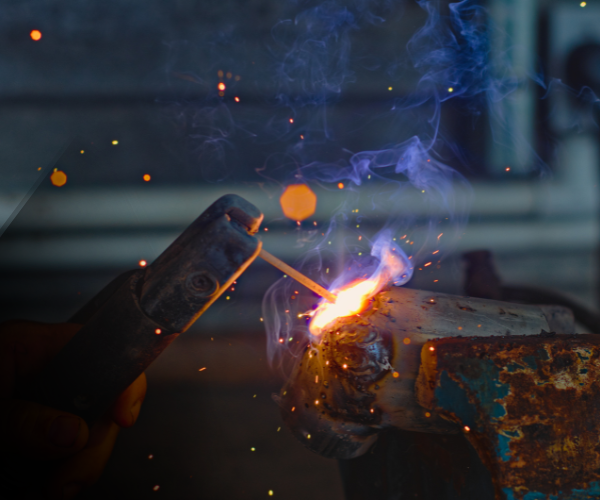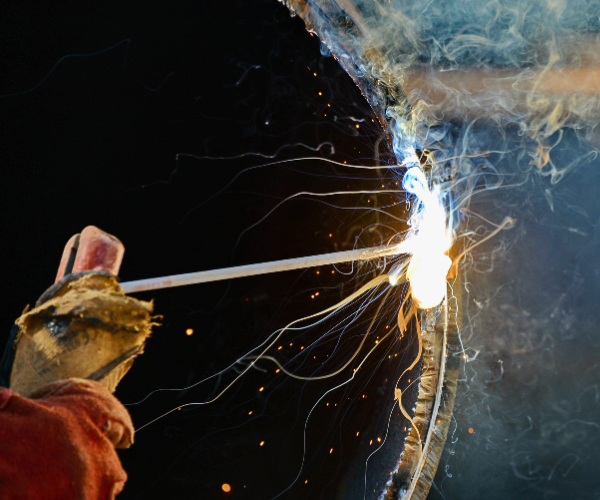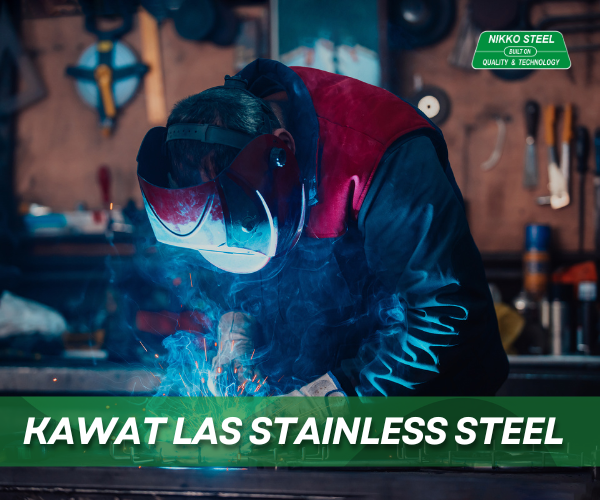Understanding AWS Welding Codes: How to Read, Choose, and Apply Electrodes
What is AWS Code?
The AWS Code (American Welding Society Code) is an international numbering system used to classify and identify welding electrodes based on their technical specifications. This code is crucial because it provides detailed information such as electrode type, tensile strength, welding position, flux coating type, and compatible current.
AWS codes help professional welders select the right electrode for different welding applications—from light work to heavy structural welding.
A Brief History of the American Welding Society (AWS)
The American Welding Society was founded in 1919 in the United States to improve welding standards worldwide. Since then, AWS has continuously updated its classification and quality systems to ensure safety and efficiency in modern welding industries.
Why is the AWS Code Important for Welding?
The AWS code acts as a technical language used by welders, engineers, and manufacturers. By understanding the AWS classification, users can:
Select the right electrode for specific applications
Avoid electrode misuse that could lead to serious failures
Match welding machines and current with electrode specifications
General Structure of AWS Codes on Electrodes
AWS codes for SMAW electrodes generally begin with the letter “E” followed by four digits, for example E6013 or E7018.
Meaning of “E” in AWS Codes
The letter E stands for Electrode, which indicates that the product is a welding rod (electrode) designed to carry electric current and create an arc.
First Two Digits: Tensile Strength
The first two digits indicate the tensile strength of the weld metal in PSI × 1,000:
Third Digit: Welding Position
The third digit shows the recommended welding position:
Fourth Digit: Flux Coating & Current Type
The last digit indicates the type of flux coating and compatible current:
Popular AWS Codes and Their Meanings
AWS Code E6013
Tensile strength: 60,000 PSI
Position 1: Suitable for all positions
Rutile coating: Easy to use, stable arc
Compatible with AC/DC
Ideal for beginners and light-duty welding
AWS Code E7018
Tensile strength: 70,000 PSI
Position 1: Suitable for all positions
Low hydrogen coating: Prevents porosity, stronger welds
Compatible with AC/DC
Designed for heavy structures and high-pressure work
Flux Coating Types and Current (Last Digit Reference)
AWS Codes for SMAW, MIG, and TIG
How to Choose Welding Electrodes Based on AWS Code
Beginners: Use E6013 for easy handling
Heavy structures: Choose E7018 for high strength
Overhead welding: Ensure the third digit = 1
Machine compatibility: Match current type (last digit) with your welding machine
Risks of Misinterpreting AWS Codes
Weak Joints: Wrong tensile strength selection
Poor Weld Beads: Incorrect welding position choice
Machine Damage: Using electrodes with the wrong current type
Defective Welds: Wrong flux coating for the material
AWS Codes on Nikko Steel Products
All Nikko Steel welding electrodes are clearly labeled with their AWS classification on the inner box packaging, helping users to:
Confirm tensile strength requirements
Identify allowed welding positions
Match current type with their machine
Improve accuracy and efficiency in welding projects
Conclusion: Master AWS Codes to Maximize Welding Results
Understanding AWS codes is not just helpful—it’s essential for professional welders and technicians. Each digit carries vital technical information, from tensile strength to current compatibility.
By mastering AWS classification, you can:
Select the best welding electrode
Avoid critical mistakes
Achieve stronger and cleaner welds
With products like Nikko Steel, which display full AWS codes on their packaging, welders can work with greater confidence, precision, and efficiency.



